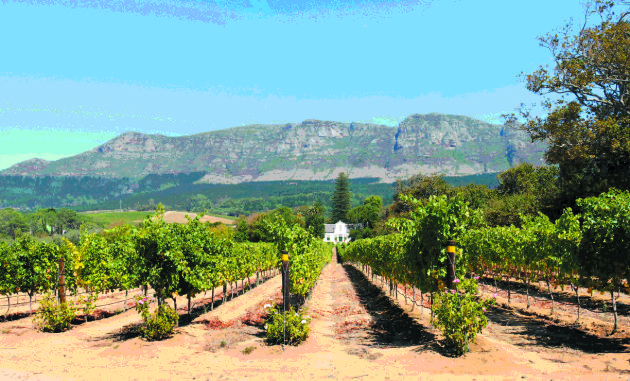
Price rises ‘essential’ if South Africa industry to survive, warns leading producer
A leading figure in South African wine has issued a stark warning about the industry's future.
Greg Guy, international director at DGB, told Harpers that he believed significant price increases for premium and super-premium South African wines were “essential,” if the industry was to survive.
“It is time for the leading players in the industry to realise that South Africa must not be seen as the number one destination for cheap and cheerful wine,” said Guy.
“We most definitely need higher prices for our wines, but we face resistance from the gatekeepers, who in turn ‘pass the blame’ onto the consumer whom they say will not pay more for SA wine.”
The 2019 harvest in South Africa came off the back of a challenging three year drought – conversely, many of the Cape's major regions experienced cool and windy conditions during fruit set in 2019, leading to fewer bunches and smaller berries.
According to Guy, the impact of a smaller harvest – the lowest total yield since 2005 – meant that grower price rises were inevitable.
“Our wines have 350 years of history and heritage and what we have learnt in the past 25 years of 'post isolation' has taken quality to the next level. We mustn’t be scared to ask for higher prices as our wines are good enough to demand these prices,” said Guy.
“Market research that shows South African wine is seen as very favourable; I think it is a chicken and egg situation whereby if the retailers gave a bigger share to SA wines at higher price points (and I’m not talking a lot – just shift each category by a pound or so) then I’m sure they would deliver as they still over-deliver in terms of quality,” he added.
However, there has been a positive overall growth in the value of South African exports in recent times. Figures released by Wines of South Africa in January 2019 revealed that the total value of South African exports rose to R9bn, yet total volumes fell due to the small size of recent vintages.
Encouragingly, there was growth in both the value of bottled exports (3%), and bulk wine exports (7%). The UK remains South Africa's largest export market by value.
Today there are over 495 private cellars in operation in the Western Cape, although South Africa is still predominantly a bulk exporter of wine - according to the OIV, over 55% of South African wine exported in 2016 was in bulk.
In addition, many owners report that rising production costs and exposure to outside economic shocks such as exchange rate fluctuations continues to eat into profitability across the board, affecting both small enterprises and major corporations.
“Relatively few private cellars in the Cape actually make a healthy profit,” said Hylton Appelbaum, owner of DeMorgenzon. “Of course, I can't give an exact figure, but the widely accepted anecdotal one is that approximately 10-15% of wineries currently make any money,” he added.
At the top of the volume hierarchy stands the Distell Group, responsible for just under 32% of the total wine production made in South Africa.







